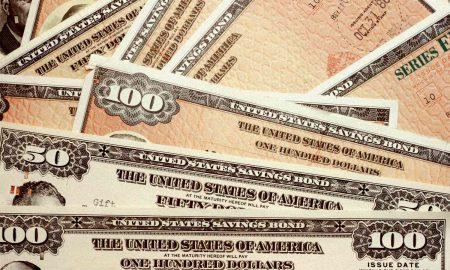
Want to Take an Early Retirement in Your 50s? Here’s What You Should Consider

After the age of 40, people start getting more tired and frustrated with their busy professional lives. This is because their bodies start to lose energy and get weaker. People start thinking about enjoying their life, relaxing, adapting to certain hobbies, and spending time with their loved ones. So, taking early retirement has its own perks to send some last years of living in peace. However, this might be very tough in reality because there are some serious drawbacks to opting for early retirement. In this article, we will elaborate on 3 major cons of taking early retirement in your 50s.
You Need More Savings
 If you are planning to retire in your 50s, then you probably have to spend about 30 years in retirement, or maybe 40 years. It means you will need a lot of money to afford your expenses during that time, and live comfortably.
If you are planning to retire in your 50s, then you probably have to spend about 30 years in retirement, or maybe 40 years. It means you will need a lot of money to afford your expenses during that time, and live comfortably.
Also, as you’ll get older, there are high chances you’ll encounter unexpected financial burdens. It may be only a few thousand dollars but with time they add up and you might get out enough finances to cover-up planned regular retirement expenses. Hence, an extra-long retirement increases the chances that your finances will get drained out pre-maturely.
You Might Not Be Able to Withdraw Money from a Retirement Account
Major retirement accounts charge an early withdrawal penalty if you try to withdraw money before you reach 59 and a half years old. It is almost equal to about 10% of the amount you take out. So, for instance, if you take out $10,000 at the age of 58 years, you will have to pay $1,000 back to the respective government.
 However, there are some ways to minimize the penalty of early withdrawal from a retirement account. The government permits some exceptions for issues like heavy medical expenses or educational expenses. Also, there are certain account types available that have exceptions to ease penalties. For example, the Rule of 55 permits 401(k) owners who quit or lose their jobs at the age of 55 years or later to take out money from their 401(k) without paying any penalty. However, you can only take money from your 401(k) that is linked to that job, not from any other retirement accounts you owe.
However, there are some ways to minimize the penalty of early withdrawal from a retirement account. The government permits some exceptions for issues like heavy medical expenses or educational expenses. Also, there are certain account types available that have exceptions to ease penalties. For example, the Rule of 55 permits 401(k) owners who quit or lose their jobs at the age of 55 years or later to take out money from their 401(k) without paying any penalty. However, you can only take money from your 401(k) that is linked to that job, not from any other retirement accounts you owe.
Another way is Substantially Equal Periodic Payments (SEPPs). Through this withdrawal strategy, you can stay away from penalties as long as you accept to take equal amounts of money out of your retirement account for 5 years or until you reach 59 ½ years old. But if you fail to fulfill this condition to take all your SEPPs accordingly, you will have to pay a fine equal to all the penalties you would have paid in previous years.
The last way is to put some retirement savings in a taxable brokerage account. These accounts do not offer the same tax benefits as retirement accounts, but also they do not impose limitations on when you can withdraw your money.
Early Retired People Don’t Qualify for Medicare
 You cannot apply for Medicare until you do not get 65 years old, which means if you are taking your retirement at the age of 50 or 55 years, you have to pay the health insurance expense from your own pocket for 10-15 years.
You cannot apply for Medicare until you do not get 65 years old, which means if you are taking your retirement at the age of 50 or 55 years, you have to pay the health insurance expense from your own pocket for 10-15 years.
With the increasing age, you cannot take risk of not having health insurance, it is strongly recommended to have some sort of health insurance policy. Because if one unfortunate emergency happens, it will wipe away a hefty amount of your retirement savings, and all your retirement expense plans will collapse.
In the End – Save More Now to Enjoy Later
If you are still seeking to take early retirement then you should save more throughout your working life, you should not mind avoiding extra shopping, fancy dine-outs, international luxuries, vacations, or other expenses. Also, you should make some investments in certain ways that will keep on providing you with some extra money.
Besides these, you should make your retirement budget and review your plan frequently to make sure you don’t get out of your saving targets. You should also have a backup retirement savings plan in case your savings drain out prematurely. If need be, staying an extra year or two in your workplace is beneficial as you don’t have to worry about your bills later.
More in Business & Finance
-
`
PLUS Capital | Hollywood Firm and Celebrity Investors Raise $60 Million
In the world of investment, Hollywood’s PLUS Capital is turning heads with a strategic play that could redefine celebrity influence in...
December 4, 2023 -
`
After Password Sharing, Netflix Is Now Struggling With a New Problem
Netflix, the titan of streaming services, is grappling with a new challenge. In the wake of its password-sharing crackdown, the company...
November 27, 2023 -
`
Why 50-Year-Olds Are Looking for a Career Change
In today’s fast-paced and ever-evolving job market, it’s not uncommon to see individuals in their 50s embarking on new career paths....
November 20, 2023 -
`
Why Mortgage Demand Is Crashing as Interest Rates Skyrocket
Imagine having a favorite local ice cream shop that suddenly jacked up its prices by 50%. You would probably think twice...
November 18, 2023 -
`
Santo Spirits | Sammy Hagar and Guy Fieri’s Joint Venture
In the world of entrepreneurial partnerships, some unions are destined for greatness. The unexpected alliance between Sammy Hagar, the iconic Van...
November 12, 2023 -
`
Southwest Airlines Tackles Passenger and Labor Challenges
Southwest Airlines, a prominent player in the aviation industry, has found itself at a crossroads, facing a combination of passenger dissatisfaction...
October 28, 2023 -
`
Everything You Need to Know About Blended Interest Rates
Hou ever blended a smoothie and thought, “How on Earth do my strawberries, spinach, and protein powder come together to taste...
October 17, 2023 -
`
The Osbournes ‘Relaunch’ Podcast After 5 Year Break
If you were glued to your TV in the early 2000s, there is no way you missed the hilarious, raucous, and...
October 10, 2023 -
`
Tesla in China: Back-to-Back Price Drops, But No Sales Jump?
As temperatures soared in the summer of 2023, Tesla seemed to be heating things up in the Chinese market too. A...
October 6, 2023















You must be logged in to post a comment Login